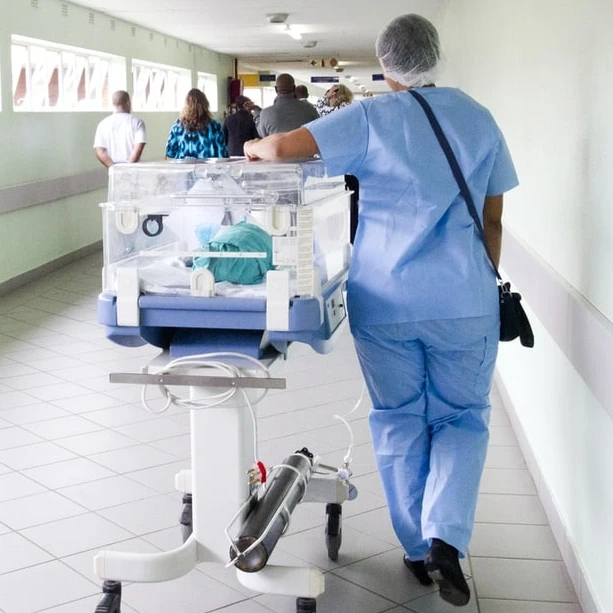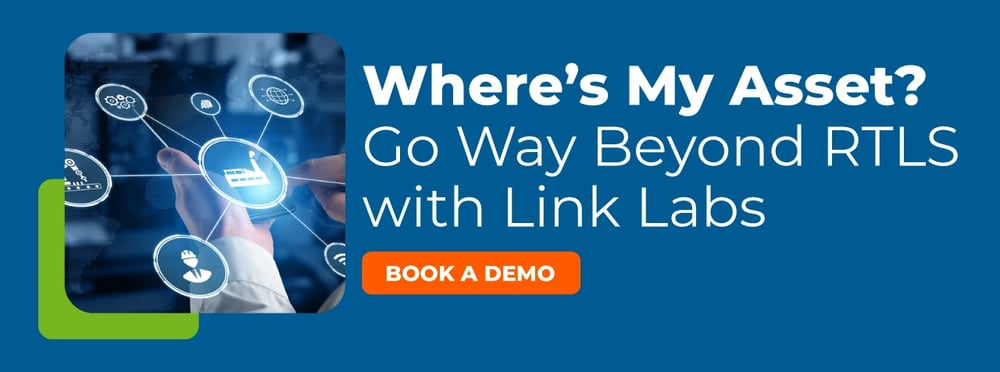Although IoT technology is transforming healthcare environments to be safer and more efficient, it brings a growing host of security concerns that healthcare providers need to address. Healthcare networks are turning to asset tracking solutions that are both secure, and help mitigate growing concerns about new technology implementation.
Compliance
The Internet of Things (IoT) is designed for efficiency rather than security. Healthcare providers encounter compliance issues regarding protected health information (PHI) and healthcare adjacent data collected through IoT medical devices.
Protected Health Information (PHI)
Data collected by wearables and IoT devices constitutes PHI under HIPAA only if it is provided to, created, or used by a Covered Entity. Healthcare providers that are Covered Entities must ensure that any data collected by IoT devices are properly regulated under HIPAA compliance requirements. However, not all data collected by IoT devices is created or used by Covered Entities.
Healthcare Adjacent Data
Wearables, health IoT devices, and healthcare applications often collect healthcare adjacent data. Healthcare adjacent data is not covered by HIPAA. However, strict state privacy laws such as the Food and Drug Administration, Federal Trade Commission, or the Attorney's General cover this kind of data. These privacy standards and penalties can be stricter than HIPAA requirements.
Join the AirFinder Difference!
- Innovation. Organizations can be freed up to innovate and bring more impactful products and services to market.
- Profitability. Increased profitability provides new opportunities to innovate and improve valuation.
- Digital Transformation. Discover competitive advantages, new revenue opportunities, improved customer relationships and increased efficiency.
Data Management
Cyberattacks and data breaches are increasing for the healthcare industry. According to the U.S. Department of Health and Human Services Office for Civil Rights, there have been over 500 healthcare cybersecurity breaches in the past year. Healthcare providers must realize that cybersecurity threats extend beyond PHI. Cyberattacks on a hospital system could compromise medical devices or important treatment information.
Healthcare organizations can use Artificial Intelligence (AI) to monitor and sort through vast network traffic and unstructured data. AI’s anomaly detection, real-time responses, and adaptive capabilities make it a powerful tool for data security.
Connection
As hospitals adopt more IoT devices, they adopt more entry points to their network. Connectivity solutions such as 5G networks and edge computing allow hospitals to strengthen information security while improving overall efficiency.
5G Networks
Private 5G networks increase connectivity and greater security for healthcare providers. Network slicing in 5G creates individual networks with their security protocols. This customizable security is especially important for IoT devices in hospitals, which require varying levels of security.
Edge Computing
As 5G networks speed up data transmission, edge computing quickens data translation by processing it closer to the devices that produced it. Because edge computing limits the amount of information sent to the cloud, it increases information security and decreases network traffic.
As IoT technology transforms the healthcare industry, healthcare providers should embrace new solutions to secure sensitive data and provide safe care.
Want to improve your healthcare organization’s security as you track equipment?
IoT solutions, such as asset tracking systems, provide healthcare organizations with not only the ability to track and manage healthcare equipment, but do so securely. Link Labs’ AirFinder solution is independent of existing WiFi networks which eliminates the risk of security breaches. AirFinder also enables greater compliance by capturing historical data that can be used to satisfy Joint Commision audits and capital budget planning. If you’d like to learn more about how Link Labs can help address your healthcare needs, book a demo today.





